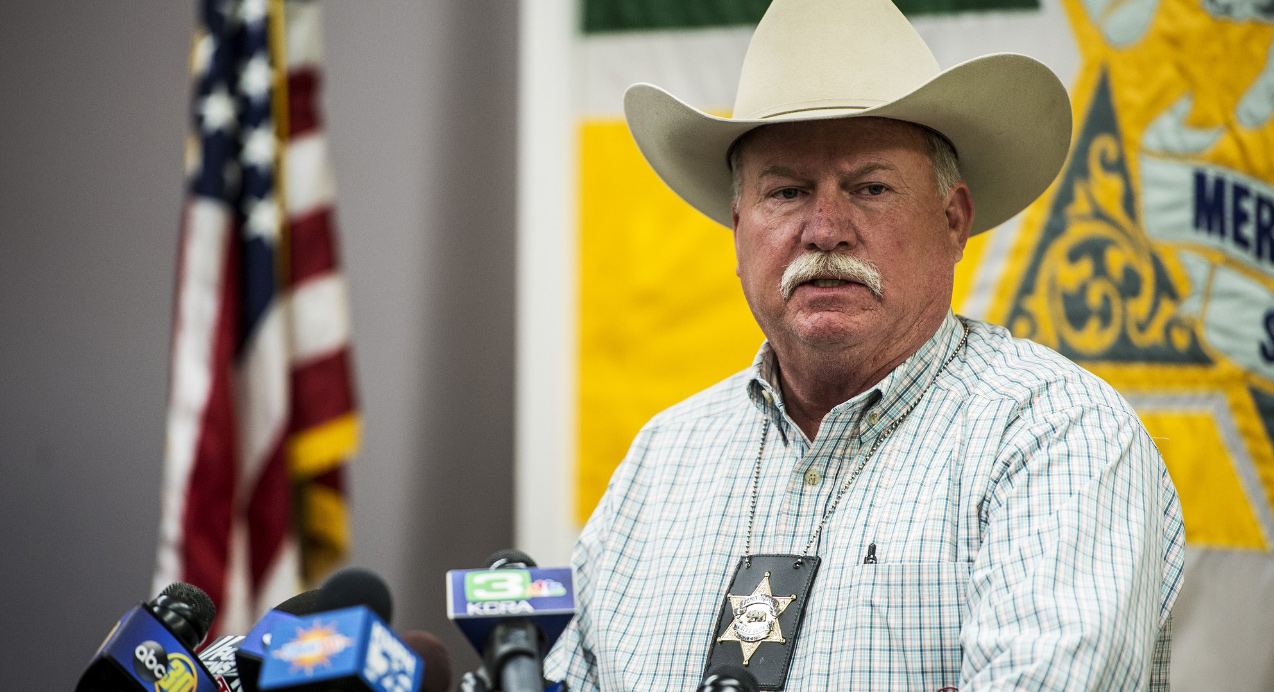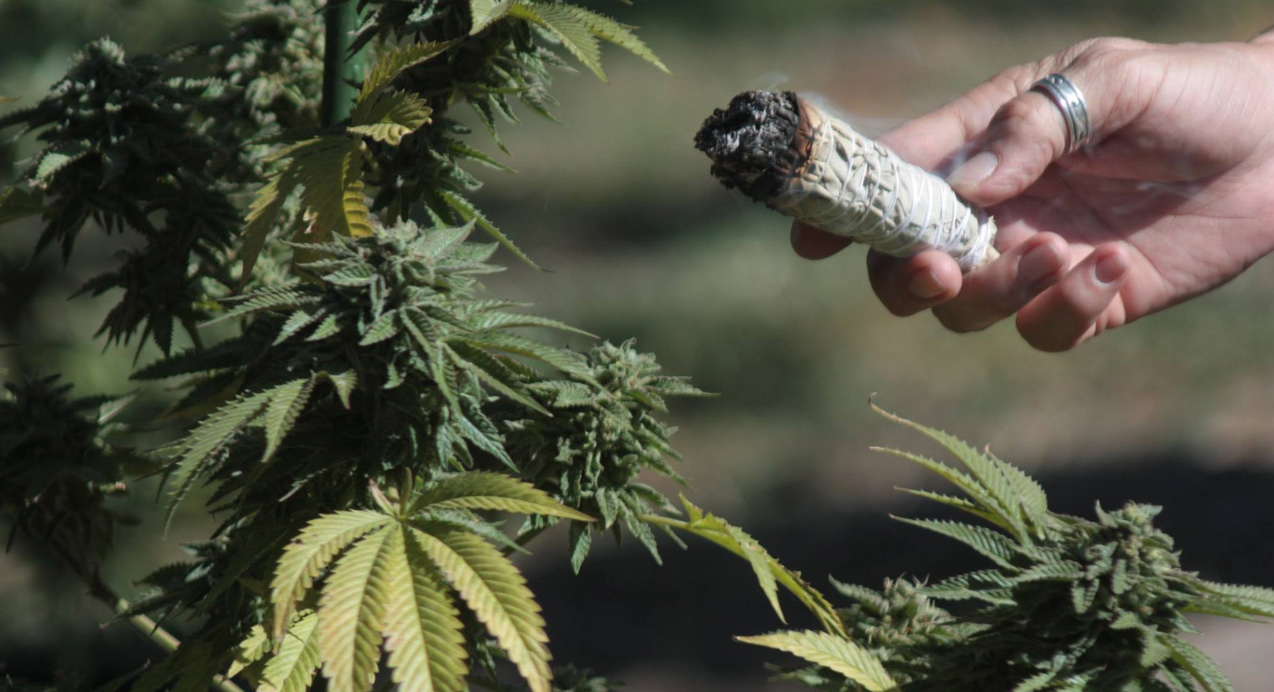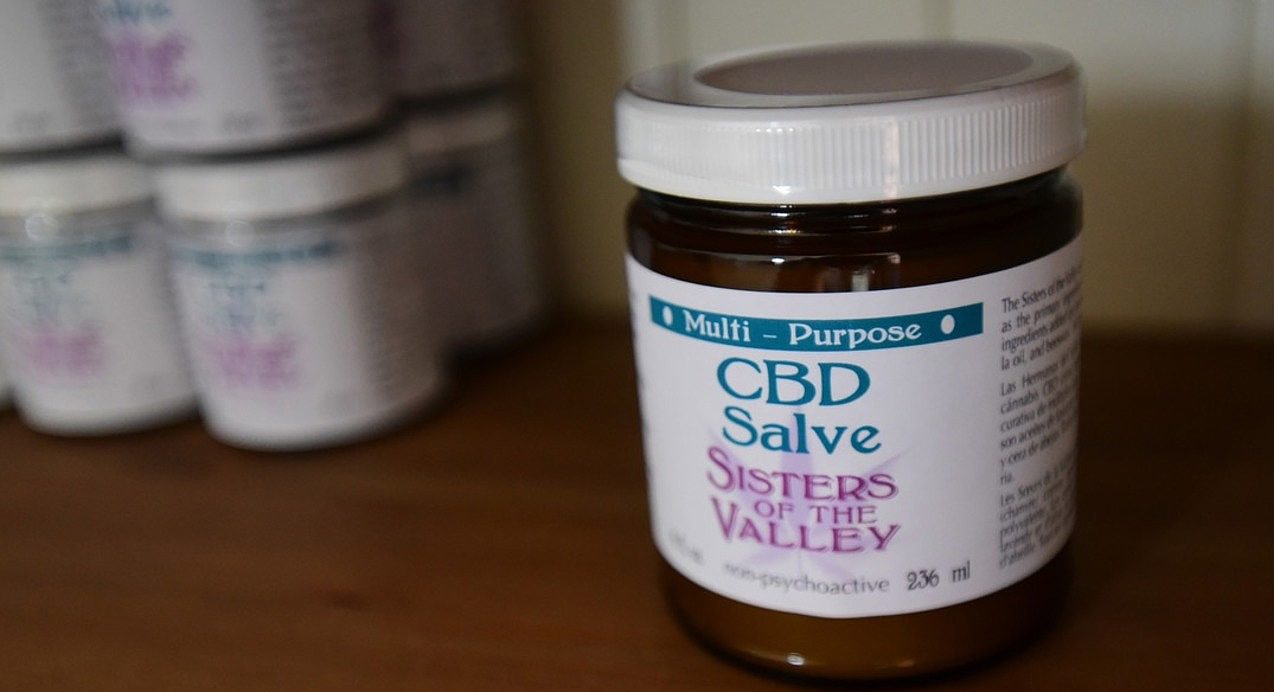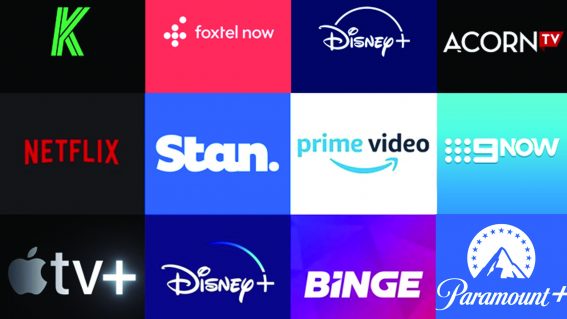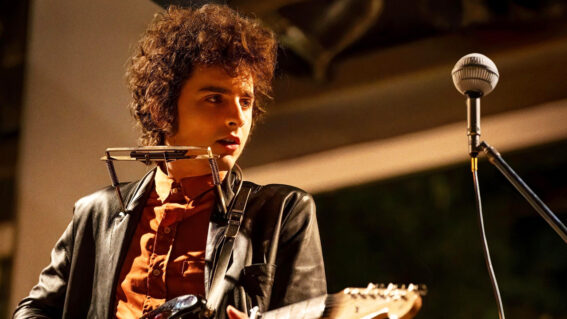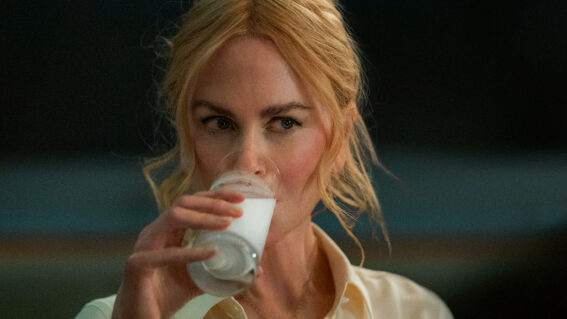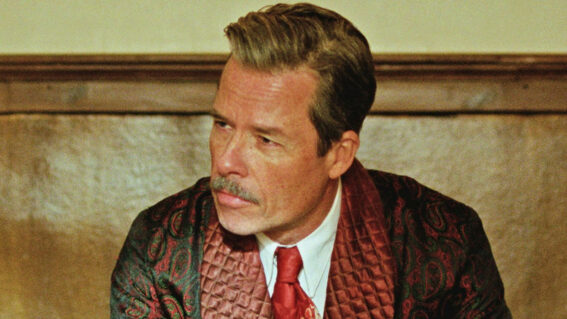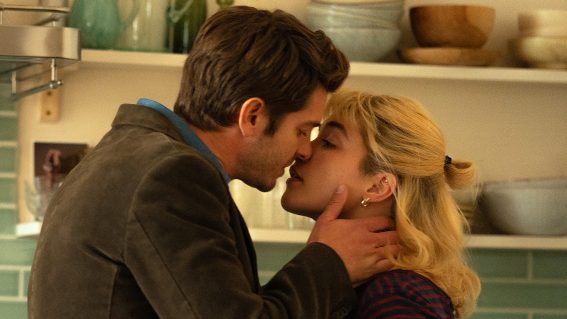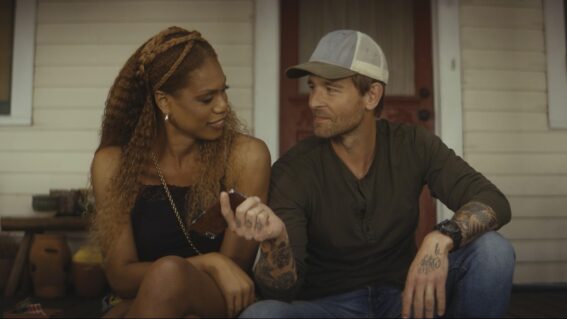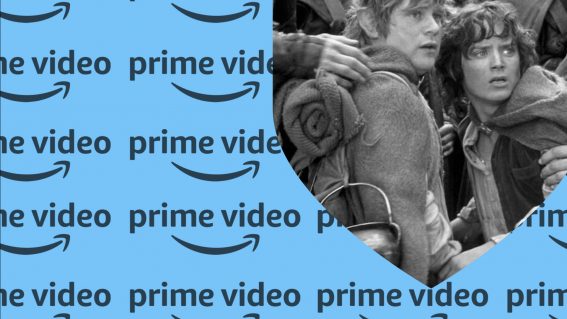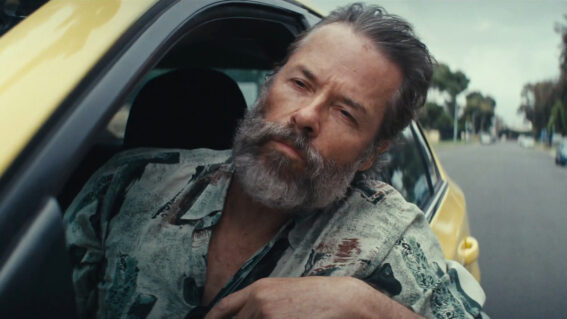Breaking Habits director tells us about his doco’s weed-dealing nuns
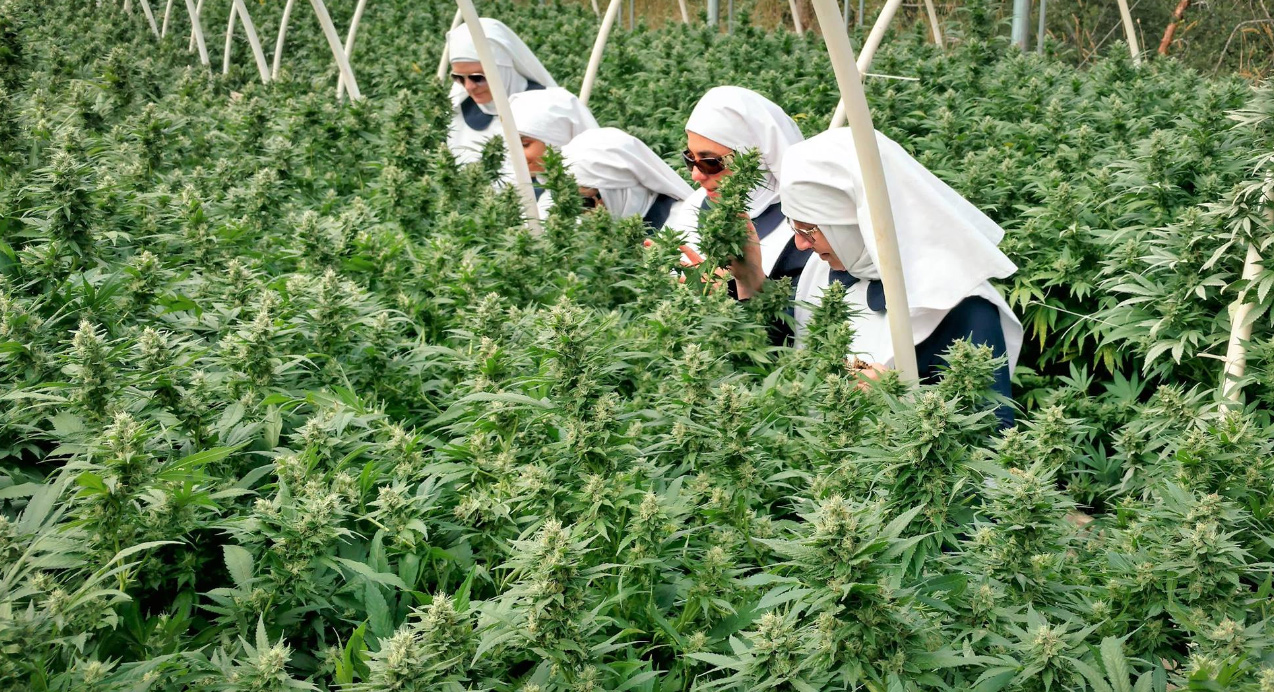
Once a high-flying corporate executive Christine Meeusen now goes by Sister Kate, founder of a medicinal-marijuana empire called Sisters of the Valley.
As Rob Ryan’s documentary Breaking Habits reveals, Sister Kate’s mission is to provide her products to those in need while fighting the interests of the country sheriff and deadly black market thieves.
Flicks spoke to director Robert Ryan about his film, peering behind the veil of Californian cannabis culture.
This interview has been edited for length and clarity.
FLICKS: Through the screen, it seems like there’s kind of a new Wild West happening out there.
ROB RYAN: Yes. Absolutely.
What’s it like coming from a different culture and seeing what’s happening with cannabis in California?
It was kind of liberating because obviously, here in the UK, we’re quite far behind in the attitudes towards cannabis. And over there, it’s been embraced. But what was interesting in the actual area that Sister Kate was growing her cannabis, the local sheriff has taken a very anti-cannabis attitude.
And so even though California is a very progressive state and their sort of attitude toward cannabis is very liberal, the lawmakers still have the option to treat cannabis as a dangerous drug, essentially. And that was what she was up against.
Then as soon as you get to the coast, down by Santa Monica, around there, it’s very open. Everyone’s smoking. You can smell it a mile off. But then the moment you get up into the sort of middle California area like Fresno and Merced where she’s based, it’s still quite anti-cannabis.
So it’s a real oxymoron in a way. The general state of California, their general attitude towards cannabis is very liberal, yet there are pockets, little red pockets, where they’re almost anti-cannabis, so it was very conflicting. That was what I found. There’s still a sort of farmers’ attitude towards cannabis that it’s the devil’s drug, essentially. And she was trying to change that attitude from this sort of stoner attitude into the healing aspect of cannabis. That’s what I found.
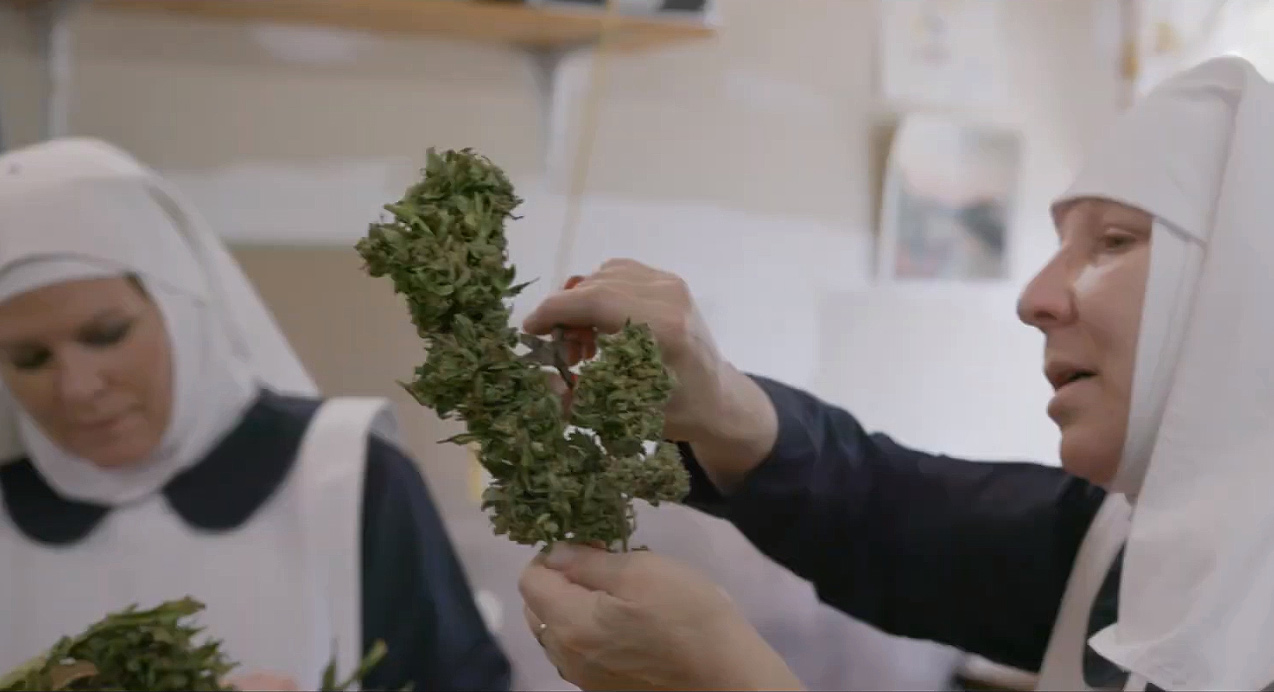
Kate is a dream subject for a documentary. What brought you to her?
I was on a website called ATTN, and they were talking about the explosion of the cannabis industry. The article was featuring Snoop Dogg and the fact that he was branding Rizlas and grinders and stuff like that with the Snoop Dogg logo, essentially. And then right at the bottom, there was basically a photograph of Sister Kate, and Sister Darcy at the time, dressed up as nuns in a field of cannabis plants.
I just thought, “What is going on? You’re telling me there’s now a Catholic sisterhood of nuns growing weed?” And I thought, “Only in America.”
So I contacted her, and I had a really good conversation with her on the phone, and she was quite keen for a European filmmaker to come over and do a film. She was entertaining the idea of doing a reality show, which I warned her against when I was there, like, “Be very careful because they’ll just mock you.” And that’s essentially what they did. They did a little teaser, and it was just basically just taking the piss out of them all.
I think she thought it was all funny and jolly and liked the idea of the media attention and getting her sort of business and her story out there, but actually, it could be very damaging as well at the same time.
She was very wary of me at the very beginning. It took a long time to get her trust. In fact, the guy that I was speaking to, her media advisor, when I was talking to him, he had a crystal spinning, and he made me aware at the very beginning that if the crystal was spinning in an anticlockwise direction at any period during our conversation, he would have doubts about me as being a genuine filmmaker. Luckily for me, it was spinning in a clockwise direction throughout the whole interview…
But she kind of kicked him into touch very early on, because his motives were more about fame, and he essentially wanted to try and get onto the film and get a credit as directing, and he had no director credit, so it was a bit odd. So he sort of disappeared quite early on, and I was just left to carry on and make this film.
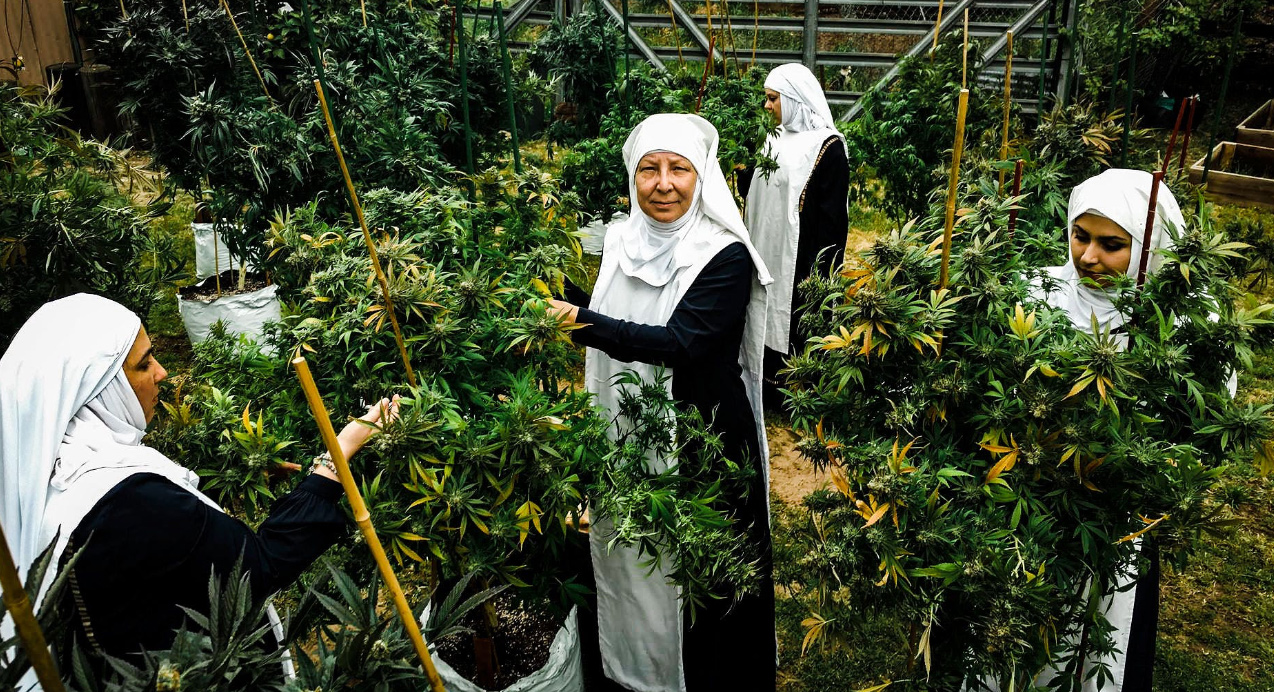
What’s the story with the nun get-up?
We had this sort of discussion very early on. Was this a gimmick? And she got very angry with me and was like, “It’s not a gimmick.” Because obviously, once you get past the habit, you sort of think, “What are you really?” Well, there is spirituality in her business, and she’s taken that from the sort of First Nation and Native American sort of spirituality practice. But then also the Mexican culture is very prominent in her business, and that’s more in the process of how she makes her oils. So she does it in a very, very natural way.
And I think what’s interesting is that this new group that she’s about to join forces with, they’ve got labs. They’re all into extraction. So you take the purest form of that strain of cannabis, and then you can put it into vape pens. So the biggest problem she faced when she first started was that people were on their death beds with cancer or whatever condition they had and the only form or way of them being able to take the sort of extract was through smoking.
Well, we all know that there’s real anti-smoking attitude going on at the moment. So she was always trying to find a different way to administer the strain of cannabis that she was extracting. So that’s all part of it as well, that sort of health side of it all, the spiritual.
And it’s a funny one because we’re obviously, in the Western world, much more based on science, and we like to see the science behind everything before we fully embrace it. They pray. She used to have a label saying “made with healing intention, with prayer sown into every bottle and jar”. Now, most people probably laugh at that, but there’s something in prayer. We have it in Christianity with praying in church, and you get a good feeling, and you can be around somebody in a hospital bed dying, and you’re all praying, and the power of prayer can sometimes bring someone out of their condition.
So, she sort of delved into that sort of world of spirituality, but had to take off her products because you can’t have a claim of healing under FDA rules.
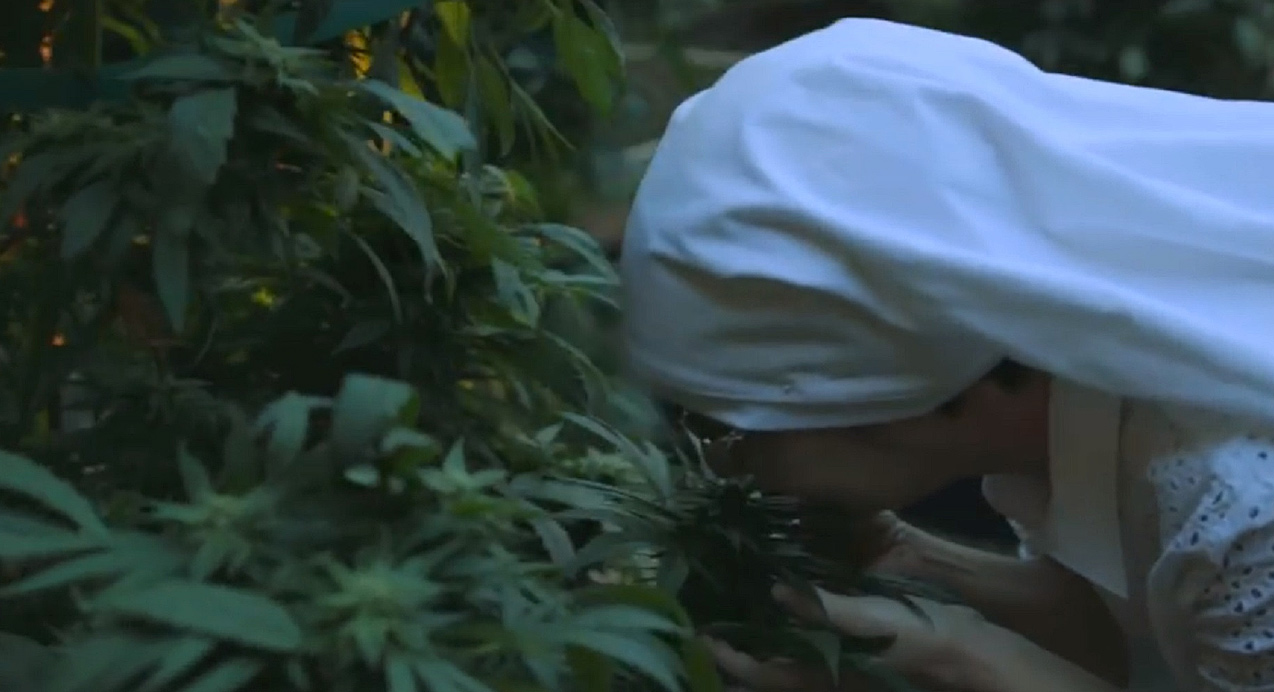
I mean, when I first got there, my first impressions were, is she basically a cult? Is she doing all these sort of moon ceremonies and stuff like that? Is it gimmicky? Is it just for show? No. She genuinely believes in it, but it brings the community together. It’s almost like the church scenario where you bring your community to the community in the church and you discuss things within the community. And that’s all she’s doing, basically.
But it’s been done for years. Farmers, for instance, would grow their crops based on moon cycles, and that’s how she grows her crops. She makes a note of the moon cycle and the time of the year, and her crops are grown based on the cycle of the moon. And it produces different kind of buds on her plants. It’s really fascinating.
I mean, I didn’t go into too much detail because I only had 90 minutes. I think I was more interested in the conflicts that she has trying to grow her products in an area of California that has massive problems with gangs and a general attitude towards cannabis. But the reason why she’s growing there is that the land that she’s bought, the farm that she bought, has no pesticides, no fertilisers.
She basically just found the purest place she could grow her products and create the purest products. And I think a lot of businesses don’t usually look at things like that. They’ll look at the sort of top line of, “How much money can we make? How much profit can we make?” And actually, her first port of call was, “How can we make the purest, cleanest, most sort of organic cannabis products?” And again, you can’t generalise, but I do think that’s come from it being a female-led business where they wanted to make products that were ethically positive.
While he might be terrible for Kate, it seems fantastic for your documentary to have a sheriff like the one depicted to promote the opposing viewpoint.
I couldn’t have cast him better. I mean, he was such a classic sheriff. And I understood it from his side, actually, and that’s kind of why I didn’t sort of judge– I tried not to judge as much as possible. I tried to show both sides of the argument. I didn’t really hold back on giving the viewpoint of the sheriff and his sergeant and the guys in his force and their general attitude towards cannabis.
What he showcased for me was that, actually, you know what? When cannabis gets legalised, it doesn’t mean the black market disappears. I always thought “let’s legalise drugs because it takes out that black market element to the industry.” And actually, it doesn’t. It actually prospers.
What Sheriff Warnke was trying to show me was that the problem they’ve got is, obviously, cannabis is an incredibly profitable business. You can grow it within three months, and you put it out to market, and you’ve made your money. And actually, it’s not cheap.
So for gangs, they use it as a way to start their operations in a way. They have these huge grows, and the profit they make from those grows then funds the gang life, and that sort of spirals into guns, harder drugs, and control. And that’s basically what he was trying to show me, how it’s fuelling gangs in sort of central, mid-California. And I saw evidence of that.
But the problem they had there, really, was probably crystal meth. You can tell that I’ve based the title on Breaking Bad, the series. She’s in a sort of similar sort of operation. She used to work for a corporate company. I shouldn’t mention who it is, but it’s one of the big boys. And essentially, she’s in that sort of similar sort of situation where she’s trying to create this empire, but it’s obviously not quite like Breaking Bad, the TV series.
But what happened with Breaking Bad, it’s almost glamourised crystal meth. That’s what I kind of felt when I was there. It’s a massive problem. And literally, at night, at 8 o’clock at night as soon as the light goes down and it gets dark, it really felt like I was on the set of The Walking Dead. Literally, it was like zombies coming out of nowhere. I did a drive around between 8 o’clock and 10 o’clock, and within that two-hour window, I must have seen about 10 cops arresting people on the streets. It was just disturbing-very, very disturbing.
It’s a fascinating time to make this type of film, because you’ve got the opportunity to see how quickly things can evolve once there’s some liberal attitudes to cannabis as a product and the innovation that comes with there being a market for it.
Yeah. You only have to go to LA to see how big this industry is and how it’s going to be. It’s huge out there. The only thing I’d say about California was that they jumped onto the recreational side of cannabis first, and actually, it’s only now that the healing side of CBD and all these other different strains of cannabis that aren’t psychoactive are now coming to the forefront, and I think that’s what’s been interesting.
It was done, obviously, through the medicinal side, and it seems like, oh, you just get a card from your doctor on Skype. It was a bit whimsical. You couldn’t really take it seriously. I could see why the likes of Sheriff Warnke were very, very sceptical about going to your doctor with a back pain and then you suddenly get a medical card.
The thing that made me annoyed, really, when I first started making this film was that there’s another side to cannabis. There’s a side that’s not psychoactive. There’s this healing side, the CBD and all these other different strains that haven’t got the psychoactive elements. Now, what they’re finding is that actually CBD has got huge healing potential on a very basic level.
So when you’ve got a headache, you can rub the cream behind your ears – I did it when I was there – or into your temples, and within about 10, 15 minutes, your headache’s gone. Now, the great thing about that is that there are no side effects involved, so you’re happily taking a very natural drug to help a very common condition, headaches, migraines. And then when you look a bit deeper, you get into the world of seizures, but that’s more complex because with seizures and epilepsy, actually, it’s the THC that helps with those conditions, the CBD calms the sort of psychoactive nature of THC. So that side of cannabis is very interesting for me.
I spoke to Sister Kate last night, and she’s now developing vape pens where you could have a hit on your vape pen if you’ve got problems with anorexia for instance, and there’ll be a dosage of THC, and it’ll help you get an appetite. Then there’s a strain of cannabis I think it’s called CBE, and it helps stem your appetite in the sense that if you want to keep eating – you can’t stop eating – this can help you stop eating. And then she’s going to do a vape pen that’s going to help you with insomnia and sleeping disorders.
So there’s all these aspects of cannabis that are still being explored but I think are really, really interesting, especially when you’ve got conditions that can eventually potentially kill you, like anorexia. Insomnia causes mental issues for a lot of people. It’s things like that that I think that were really interesting for me. But the problem is you’re always going to have that stigma attached to cannabis, that of stoners.
Talking of CBD, what’s the actual scale of the commercial operation that Kate’s running? And does she just FedEx things off to people?
She had a few problems at the very beginning. I think she used Etsy or some other online store. And the problem they’ve got is it’s still a cash-based business, it’s very hard to get banks. I believe her bank, the bank that she uses for her commerce, is British bank Barclays, and it was the only bank she could get to work her business through an online store.
I think she just got one barrier after another, a bank would drop out or she’d have to put down a bond of something like $180,000. That sort of separates the sort of amateurs from the professionals. Obviously, her background in the world of banking, originally in the corporate world, has helped her get through all those barriers and those brick walls, and I think currently, at the moment, her turnover is over a million dollars. So it’s a big, big business.
And, as I understand it, she’s about to do a massive deal with an operation that are legal, and they want a brand to deal in this sort of more healing side of cannabis. And so they’re about to join forces, and this company is huge. It’s ginormous. So I think she’s about to become very, very big.
I know that she’s got an operation in Canada, Portugal, the UK, Ireland, Brazil, Mexico. And so she’s forming this sisterhood, these groups around the world, where the hierarchy will be based on a female-base hierarchy rather than a male-dominated business, and it’s very interesting in that respect. I’m all for it, but she agrees with me that it should be integrated. It should be not just a female base. It should be showing the way that for too long businesses have been male-dominated, and it actually is great to have females running businesses because it’s a different mindset.
It tends to be less about the money, more about the people, making sure that your employees and your workers are all happy. Also, there’s a mindset about the planet and making sure that you don’t leave a nasty carbon footprint. It’s attitudes like that that I think the world is desperate for. It’s crying out for that, to have a bit more of a conscience about what you’re doing and pumping the profit back into good projects, worthy projects, rather than just all about the money and then worry about the problems later.

